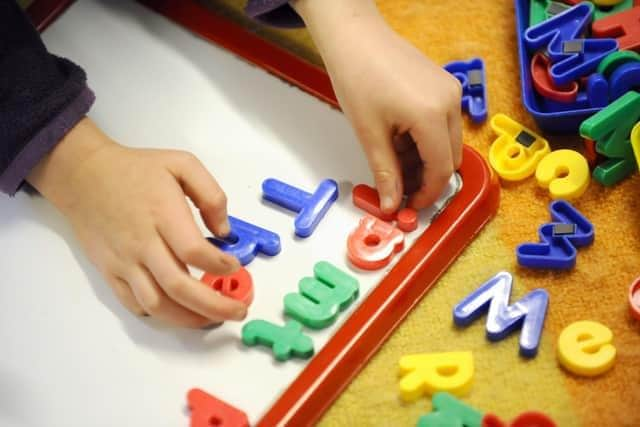Concern after number of nursery teachers in Scotland almost halves in a decade
The number of qualified teachers working in state-funded early learning and childcare in Scotland has almost halved over the past decade, new figures have revealed, as the SNP was accused of “draining nurseries of specialist expertise”.
In 2012, there were 1,386 nursery teachers, the Liberal Democrats said – but this dropped to just 734 last year – a fall of 47 per cent.
Advertisement
Hide AdAdvertisement
Hide AdThere has previously been controversy over councils such as Edinburgh removing qualified teachers from nursery classes and replacing them with early years practitioners.


Liberal Democrat MSP Willie Rennie said: “Through sheer persistence, Scottish Liberal Democrats persuaded the SNP of the value of expanding free early learning and childcare. Every part of the sector should be thriving.
“However, these figures show that specialist expertise has been drained from nurseries. Those with these qualifications have had their posts removed because they are too expensive to keep. We need them as part of the important mix of staff alongside other excellent team members.
“Children have missed out on so much. The poverty-related attainment gap has widened and both parents and teachers are struggling to see any solutions from this failing government.
“Scottish Liberal Democrats want to ensure that everyone achieves their potential in life, which is why we would invest in nursery education and reverse years of SNP mismanagement. We want to make Scottish education the best in the world again.”
The EIS teachers’ union has criticised reductions in nursery teachers, arguing they help ensure that children have the best possible start.
However, the trade union Unison, which represents nursery workers who are not teachers, said it was important not to look at teacher numbers in isolation.
Kay Sillars, a Unison regional manager, said: “We need substantially more investment in the whole early years workforce. And we need to be careful not to look at teacher numbers in isolation, particularly for this age group, as this is not the best way identify the quality of early learning provision.
Advertisement
Hide AdAdvertisement
Hide Ad“Early years practitioners are fully qualified to work with pre-school children. The fact that early years practitioners qualified to degree level can now take on leadership roles is something to be celebrated, and help develop learning and prepare young children to start school. We just need to ensure that all early years staff have time to reflect, learn and develop their skills.”
Responding to proposals in Edinburgh in 2020, Alison Murphy, from the EIS, said nursery teachers “ensure that children have the best possible start, particularly as regards learning and teaching”.
She said: “We produced huge amounts of evidence last year about the unique contribution teachers in nursery schools can make to children being able to have a successful start in school. If you remove them and lose that, then your best chance of closing the attainment gap is gone."
The figures highlighted by the Liberal Democrats show there were 1,386 nursery teachers in Scotland in September 2012. This fell to 1,288 in 2013, 1,200 in 2014, 1,038 in 2015, 985 in 2016, 921 in 2017, 821 in 2018, 798 in 2019, 729 in 2020, 704 in 2021 and 734 last year.
In August 2021, the number of hours of funded childcare that children were eligible for almost doubled, from 600 hours a year to 1,140 hours a year – the equivalent of about 30 hours per week in school term-time.
First Minister Humza Yousaf previously pledged to extend free childcare to one and two-year-olds, as well as three and four-year-olds. He said he wanted Scotland “to be the best country in the world to grow up”.
His predecessor Nicola Sturgeon said her “defining mission” as first minister was to improve education and close the poverty-related attainment gap between rich and poor school pupils. In 2016, the SNP pledged to "substantially eliminate [the attainment gap] within a decade". However, it has remained stubbornly wide.
The Scottish Government was contacted for comment.
Comments
Want to join the conversation? Please or to comment on this article.
